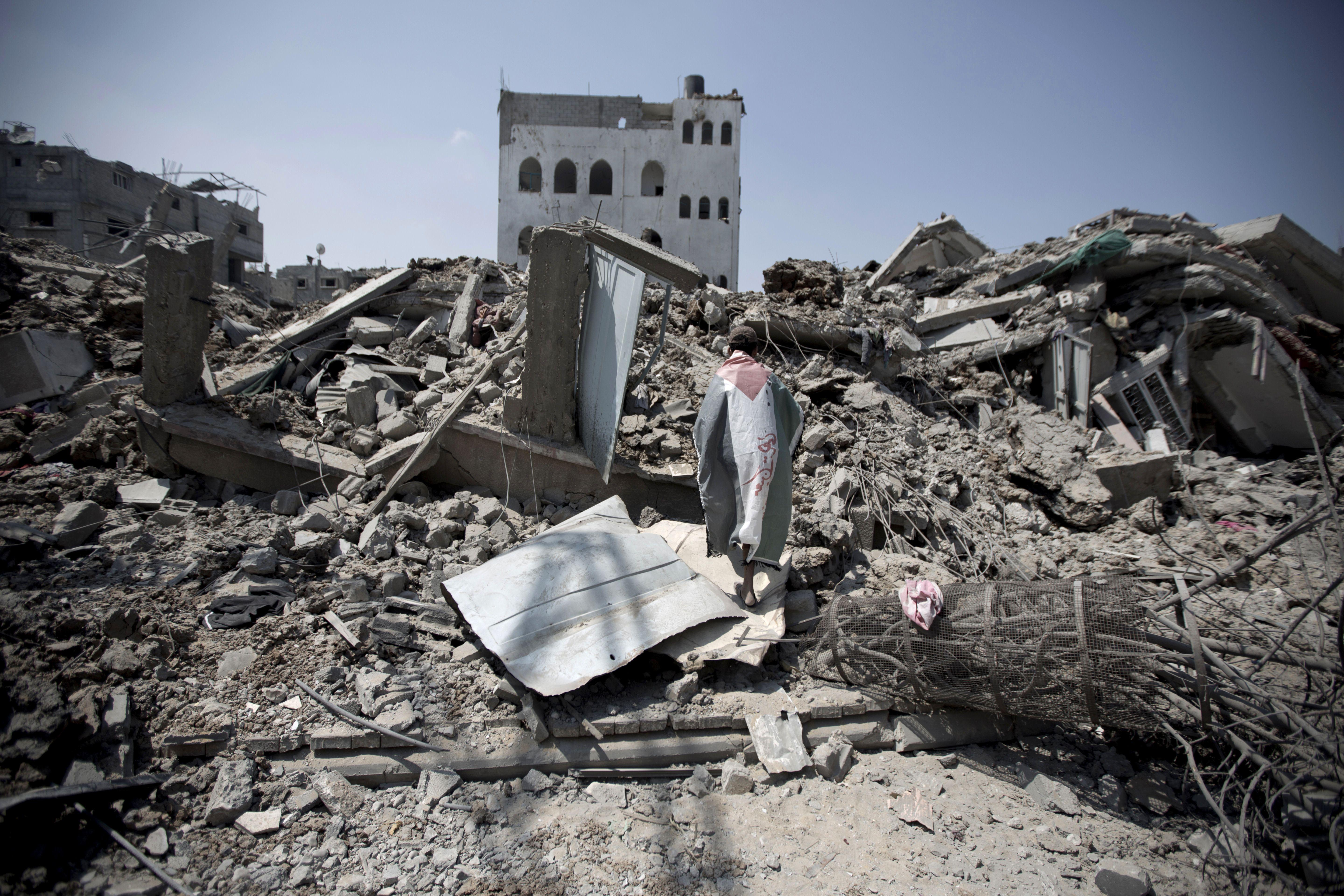It’s a little hard to square headlines like “Gaza fighting abates” and “lull in Gaza fighting” with continued reports of Israeli shelling in Gaza and rocket attacks in Israel, but by the very low standards of this conflict, the violence does appear to have been less intense today after a weekend of intermittent cease-fires.
That does not, however, mean that the sides appear any closer to a cease-fire deal. Israeli Prime Minister Benjamin Netanyahu has rejected cease-fire calls from Secretary of State John Kerry and the U.N. Security Council. Hamas rejected a temporary cease-fire extension yesterday.
According to the New York Times, with a permanent cease-fire seemingly out of reach for the moment, Kerry’s new thinking is that “by stringing together enough temporary periods of quiet … there might yet be a way for the Israelis and the Palestinians to begin talks on a long-term solution.”
Meanwhile, the criticism of the secretary of state from Israel has been withering. Haaretz’s Ari Shavit writes that the conflict had been headed for a resolution before Kerry “ruined everything” by promoting a cease-fire plan crafted with input from Qatar and Turkey that was seen in Israel as emboldening Hamas rather than an Egyptian-backed initiative. “The man of peace from Massachusetts intercepted with his own hands the reasonable cease-fire that was within reach, and pushed both the Palestinians and Israelis toward an escalation that most of them did not want,” Shavit writes.
Avi Issacharof of the Times of Israel Israel writes that Kerry’s efforts “led to an extraordinary phone call taking place between a senior Palestinian Authority official and an Israeli counterpart, during which the two mocked the senior diplomat’s naivete and his failure to understand the regional reality.”
The AP diplomatic correspondent Matthew Lee tweeted ruefully that it now “Looks like phase one of new US Mideast peace strategy to piss everyone off so much they stop fighting each other & turn on Kerry is working.”
I suspect that some of the anger being directed at Kerry is just deflecting attention from the fact that the two sides have what still seem to be irreconcilable demands. Kerry’s dialogue with Qatar and Turkey began only after Hamas rejected an earlier, Egypt-backed proposal. If Kerry had stuck with pushing the Egypt plan, he might have avoided becoming a punching bag in the Israeli media over the weekend, but it likely would have been equally useless in terms of the goal of stopping the bloodshed.
The only good news is that even without much chance of a permanent cease-fire, the two sides do seem to be putting out signals about de-escalating the conflict, though they haven’t been on the same page about the timing and terms. As Reuters reports:
Gaza’s dominant Hamas Islamists had called for a pause to the hostilities ahead of Monday’s festival marking the end of the fasting month of Ramadan. But Israel balked, having abandoned its own offer to extend a 12-hour truce from Saturday as Palestinian rockets kept flying.
With more than 1,000 people killed in Gaza—the vast majority of them civilians—as well as 43 Israeli troops and three Israeli civilians, there seems to be some hope now that the airstrikes and rockets will gradually wind down over the next few days even without a formal cease-fire deal in place. But we don’t really seem much closer to a formal end to the fighting than we were before last weekend.
